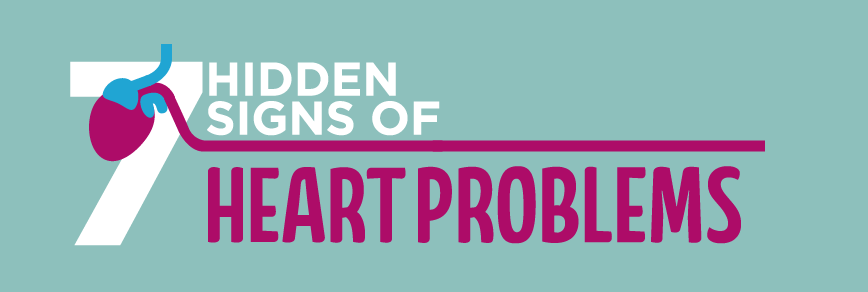7 signs of heart problems: erectile dysfunction and heart disease

Most people think that the symptoms of heart disease are obvious – a sudden, crushing feeling in the chest and shooting pains down the arm. But there are several warning signs that can also be associated with heart problems. Here are seven hidden signs to watch out for…
Symptoms of heart problems
1. Swollen feet
You might find that your shoes feel tight, or your feet feel sore and visibly swollen with no obvious explanation. It might be accompanied by sudden weight gain.
Why: As blood flowing out of the heart slows due to heart disease, blood returning to the heart gets backed up. This causes fluid to build up in the tissues of the feet, abdomen, ankles and legs.
2. Non-chest pain
Heart problems don’t just cause chest pain – the pain can also be felt in the shoulders, arms, elbows, jaw, or neck.
Why: This is known as referred pain, when a person feels pain in an area away from the actual source of the pain. This can occur when strong pain messages running along nerves overwhelm nearby nerves, causing pain to be felt elsewhere.
3. Erectile dysfunction
Also known as “impotence”, erectile dysfunction occurs when a man cannot gain or maintain an erection sufficient for sex. This condition can be a clear sign of cardiovascular problems.
Why: The narrowing of blood vessels to the penis can be a clear indication of heart problems and can present itself before other symptoms occur. For more information on erectile dysfunction visit our online clinic.
4. Random dizziness
Light-headedness or feeling faint at random times can point to problems like an irregular heart rhythm or even a heart attack.
Why: Blood flow to the brain can be reduced by an abnormal heart rate or by a drop in blood pressure.
5. Memory loss
A subtle sign – memory loss and muddled thinking might first be noticed by friends or family.
Why: Heart problems can lead to a restricted blood flow to the brain. This can cause injury and damage to brain cells resulting in issues such as memory loss.
6. Reduced tolerance to exercise
If you start to struggle with physical activities that you previously found easy, you could be suffering from a heart problem. Being unable to climb stairs without feeling winded, or having to rest more often than before may be an indication that your heart is struggling.
Why: When your heart becomes unhealthy, it is less effective at pumping oxygen-rich blood to your muscles, and so physical activity becomes harder.
7. Unprompted sweating
If you sweat or become clammy at random or unexpected moments, such as relaxing in a chair, this could be an indication of heart disease.
Why: Heart problems can cause an over-activation of the sympathetic nervous system which causes your "fight or flight" response, making you sweat at unusual times.
What if I see these signs of heart problems?
If you experience any of these symptoms, it’s safest to get checked by your doctor as soon as possible.
Don’t be alarmed – many of these symptoms could be easily explained and may be unrelated to your heart’s health. However, knowing what to look for can help you identify heart problems quickly and get the treatments you need.
How to prevent heart disease
Prevention remains the best cure for heart problems. Living a healthy lifestyle can help control your risk and protect your heart from damage. So here's some of the things you can do to reduce your risk:
- Regular exercise
- Eating a healthy balanced diet
Erectile dysfunction and heart disease
Erectile dysfunction (or 'impotence') can be a clear sign of cardiovascular problems. The narrowing of blood vessels to the penis can be a clear indication of heart problems and can present itself before other symptoms occur.
When to get help
If you have experienced problems with your erections it's a good idea to get it checked out. Our clinicians can perform a quick and discreet online assessment to find the best treatment for you.
References
www.bhf.org.uk/informationsupport/heart-matters-magazine/medical/11-signs-you-might-have-heart-disease
www.health.harvard.edu/heart-health/5-overlooked-symptoms-that-may-signal-heart-trouble






